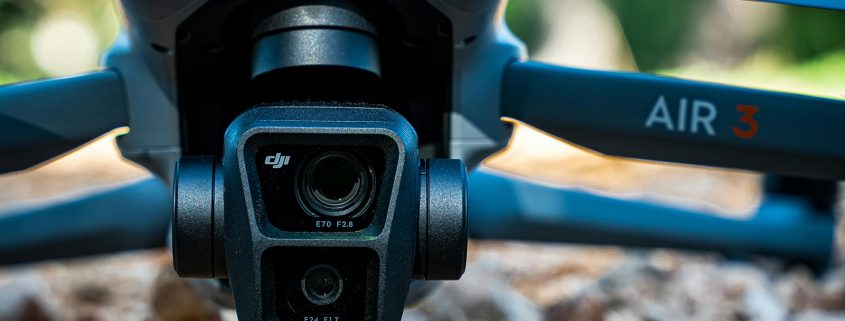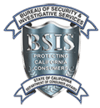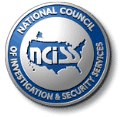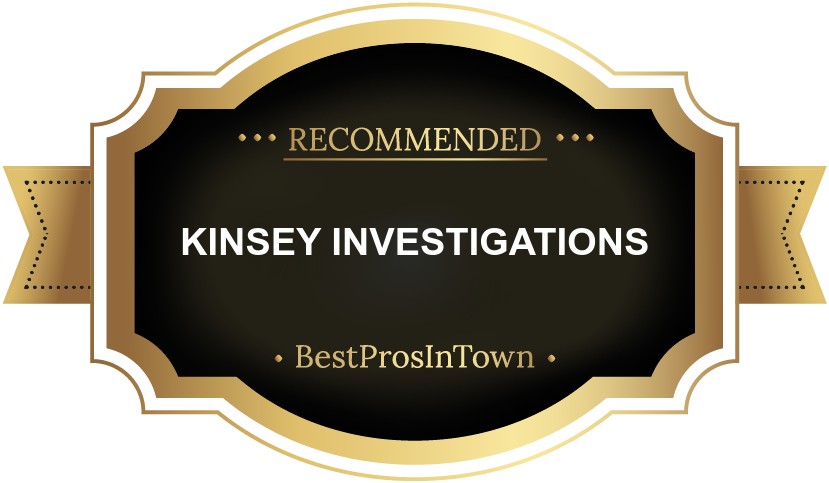Can California Private Investigators Use Drones?
Can California Private Investigators Use Drones? While you might think it makes sense for a private detective to use a drone for surveillance or gathering evidence, the truth of the matter is more complicated. Many federal and state regulations apply to operating a drone, whether for work or recreation. And many cities and counties (Orange County and the city of Malibu, for instance) have their own unique municipal codes as well. The use of images, audio or video recorded by a drone is also subject to many regulations, and California private investigation firms must follow these like any private citizen. A Los Angeles private detective agency such as Kinsey Investigations cannot legally fly a drone over private property, or even within the vicinity of someone in public, for the purpose of recording someone’s personal or familial business. And any evidence an L.A. private investigator gathers by illegal means will not be admissible in court. However, drones can still be used by Los Angeles private investigation firms in some cases. Kinsey Investigations is meticulous about following federal, state, and local laws in all of our case work, including how to use drones legally and effectively as part of some private investigations services.
Different Regulations in Places Like Malibu and Orange County
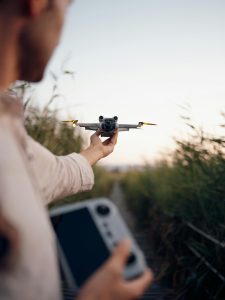
Please Note: Kinsey Investigations cannot provide legal advice, and the information contained in this post and elsewhere on our site is provided for general informational purposes only.
Since drones became widely available to the public, federal and state lawmakers have considered what sort of legislations should govern their various uses. While recreational flying of drones by teens or adult hobbyists is already subject to many regulations, the potential for commercial use of drones opens up a broader conversation relating to privacy, health, and safety of the general public. The Federal Aviation Administration (FAA) requires anyone operating a drone for business purposes to pass its Aeronautical Knowledge Test and follow all the guidelines outlined in Part 107 of its Small Unmanned Aircraft System (UAS) regulations, which include registering the drone with the federal government. In terms of California law, specifically, several legislations govern where and how commercial drone pilots and drone hobbyists may use their drones and any images, video, or audio recorded by them. Because California private investigators and private detective agencies operate independently from any government agency, we must abide by both federal and state laws, the same as anyone else operating a drone in California.
Laws governing drones vary from state to state. In California, the first state law pertaining to drones, SB 807 // 2016, states, “An emergency responder shall not be liable for any damage to an unmanned aircraft or unmanned aircraft system, if that damage was caused while the emergency responder was providing, and the unmanned aircraft or unmanned aircraft system was interfering with, the operation, support, or enabling of the emergency services listed in Section 853 of the
Government Code.” More plainly, this law protects emergency responders including police, firefighters, E.M.T.’s, etc. from any liability they might otherwise face for damaging a drone, if the drone was interfering during an emergency. Along those same lines, AB 1680 // 2016 makes any interference of first responders’ work, during emergencies (including interference by someone operating a drone), a misdemeanor offense. While private investigators may sometimes work closely with first responders, we are not considered emergency personnel. Therefore, we too could face misdemeanor charges if a drone we were flying interfered with an emergency situation. Finally, AB856 // 2015 makes it illegal to enter the airspace near an individual for the purpose of recording images, audio, or video of their personal or family activities, without their permission. While this legislation was written primarily with celebrities in mind, you can see how this also limits private detectives from using a drone in many surveillance or evidence gathering operations.
Various cities and towns in California have their own individual laws governing drones, so it makes sense for anyone, including Los Angeles investigators to familiarize themselves with the municipal regulations specific to where they are intending to operate a drone. The California Department of Fish and Wildlife as well as the California Department of Parks and Regulations have also enacted legal guidelines about drone use, especially in parks and nature preserves, primarily in the effort to avoid drones disturbing or injuring wildlife.
Using Drones in California Private Investigations
So, when can a California private investigator use a drone? Drones can aid in investigations and evidence-gathering for cases involving property damage. They may also prove useful when the layout or condition of private property or public infrastructure can serve as evidence in a case or help a private detective agency with planning an investigation. If a Los Angeles County investigator wants to plan for various contingencies, alternate routes, or the best options for a fast exit of a situation, aerial images taken by a legally operated drone may prove invaluable in that process. And, while it may not be admissible to use drone recordings to prove where someone was at a particular time, sometimes proof of where the person was NOT is just as valuable in court. Additionally, when a case is primarily focused on an outcome such as finding missing persons in Los Angeles, as opposed to ongoing litigation, images or footage from a drone may be able to provide vital information that helps the L.A. private investigator solve the case more quickly. In the end, drones are one of many tools in any Los Angeles detective’s professional arsenal, and like any tool, the skill, experience, and ingenuity of the person using it will often determine how useful or not it will be.

